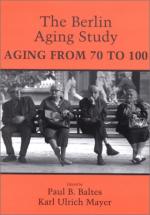|
This section contains 689 words (approx. 3 pages at 300 words per page) |

|
Soon after entry into space, physical changes occur within the human body, and these changes become more severe and diverse as flight duration increases. When in space, humans experience early signs of a decrease in blood volume and red cell mass, aerobic capacity, endurance, strength, and muscle mass. Moreover, there is a reduction of bone density in the lower limbs, hips, and spine, and in the absorption of calcium through the gut. Visual-spatial orientation and eye-hand coordination are also affected.
When humans return to Earth's gravity, this reduction in physical fitness manifests itself through the body's inability to maintain the blood pressure control necessary to prevent fainting. This inability occurs because the heart and blood vessels are less responsive. Balance, gait, and motor coordination are also severely affected. Similar but less-intense symptoms occur during and after complete bed rest.
Bed Rest Studies
Researchers study bed rest...
|
This section contains 689 words (approx. 3 pages at 300 words per page) |

|


